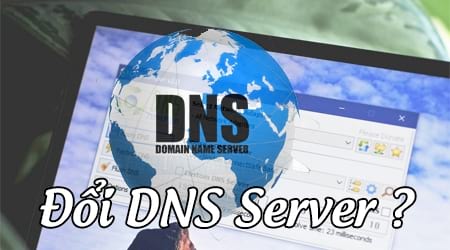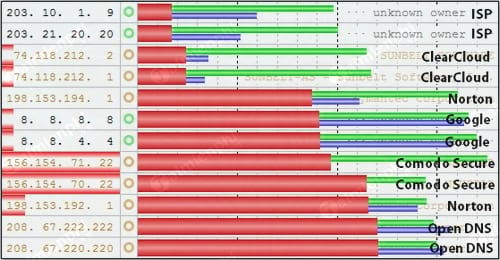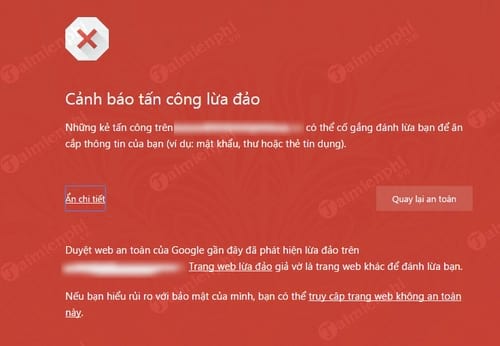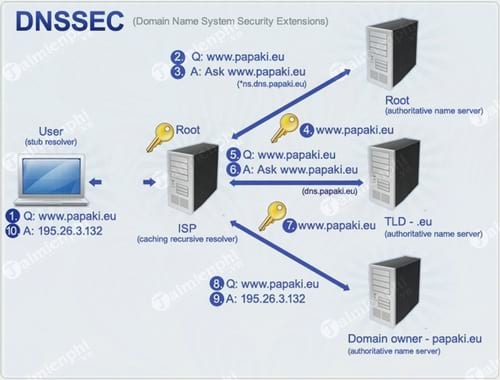DNS servers are important components to help users have a better web experience, but very few people understand how they work or what security capabilities will cause. The Internet service providers you are using today will automatically provide you with a private DNS address, but you do not need to use these DNS from the provider. Instead, users can use third-party DNS servers that provide a range of features that internet service providers may not offer. However, the problem here is why do you need to change DNS Server in network administration? without having to use the default DNS from that internet service provider. The following article will be the answer for you as well as many people wondering about this issue. Let’s follow along.

Why change DNS Server in network administration?
1. Improve the speed of the network in use
Third-party DNS servers can provide users with faster internet speeds than DNS servers from the default internet service provider. However, this is not guaranteed as it will depend on the user’s geographical location (closer to good DNS servers, faster access) and also the state of home DNS servers. provide the internet service the user is using.

If all you care about is speed, you might see some advantages from switching to a third-party DNS server. Today’s most popular third-party DNS providers like Public DNS from Google or OpenDNS offer faster connections. Google Public DNS and OpenDNS are both actively participating in the global Internet acceleration system, allowing to get the IP addresses of people connecting to DNS to bring users closer to IP addresses to help increase connection speed. connect. Meanwhile, other DNS server systems, servers provided by Internet service providers are not so quick to move towards new technologies.
2. Many significant improvements

If a user’s Internet service providers are poor at keeping their DNS servers up and running quickly and reliably, users may experience periods of “dead time” when websites fail to load or load very quickly. slow because DNS requests take some time to resolve. If the user’s internet service provider doesn’t do that well, the user can turn to a third-party DNS server that provides a more reliable user experience.
3. Controlling young children
If the user has young children and wants to set up web filtering, there are many different ways that allow the user to do this. One of the easiest ways to configure a web filter is to change the user’s DNS server to OpenDNS. Change the DNS server on the user’s router and the user will be able to configure parental control settings on the OpenDNS website, allowing the user to block certain types of websites and view the websites accessed from the network user’s family.

This is especially convenient because after changing the settings on the user’s router and setting up parental controls on the OpenDNS website, the settings will apply to all devices on the home network. of users, including computers running different operating systems, game consoles, smartphones, tablets and more. When a DNS request is made for the IP address of a website, OpenDNS returns a different IP address. The user’s browser will connect to that address and see a message saying that the website the user wants to visit has been blocked.
4. Fraud prevention

OpenDNS also uses filters to block phishing sites. Popular browsers now have built-in anti-phishing protection, but if a user runs a network of WindowsXP computers running Internet Explorer 6, using OpenDNS will bring it all up. computers in the network some protection against user identity theft activities. Other DNS services do not provide these features. For example, Google Public DNS doesn’t include any content filtering, as it only serves as a fast DNS service without any other kind of support.
5. High security features
Third-party DNS servers such as OpenDNS and Google Public DNS also provide security features not yet provided by DNS servers from internet service providers. For example, Google Public DNS supports DNSSEC to ensure that DNS requests are signed securely and correctly. The DNS servers of Internet service providers may not have implemented such security.

If SOPA (Stop Online Piracy Act) is passed, no US DNS servers will support DNSSEC, because according to SOPA law, DNSSEC standard will be active. illegal. This also means that users in the US will have to use DNS servers abroad if users want to enjoy the benefits of DNSSEC.
6. Access region-locked content

Special, third-party DNS servers, can also allow users to access region-locked content. For example, if users switch to DNS servers Tunlr will allow users to watch free media content like Netflix, Hulu and BBC iPlayer no matter where in the world the user is. When the user’s computer connects to a third-party DNS, the DNS service does some work to make the service provider think that the user is somewhere else in the world. This is a convenient choice because it allows users to access these services on any device simply by changing the DNS server on the user’s router.
7. When websites are blocked at IP level
An Internet service provider can block the website it wants by redirecting it to another website. If websites are blocked in this way, changing the user’s DNS server to a third-party DNS service will make it easier for the user to access the website the user wants. It should also be noted that, if some websites are blocked at the IP level, changing DNS will also become ineffective.

https://thuthuat.Emergenceingames.com/tai-sao-can-doi-dns-server-trong-quan-tri-mang-22465n.aspx
So above are all the reasons that users need to know to understand why we need to change DNS Server. Hope the article is useful and gives readers the most legitimate explanations. I wish you a good day.
Related keywords:
DNS Server
Why do you need to change DNS, Why do you need to change DNS Server,
Source link: Why change DNS Server in network administration?
– Emergenceingames.com
